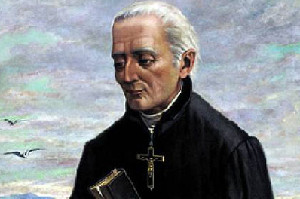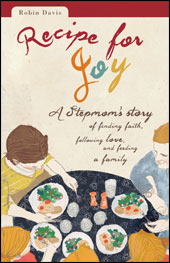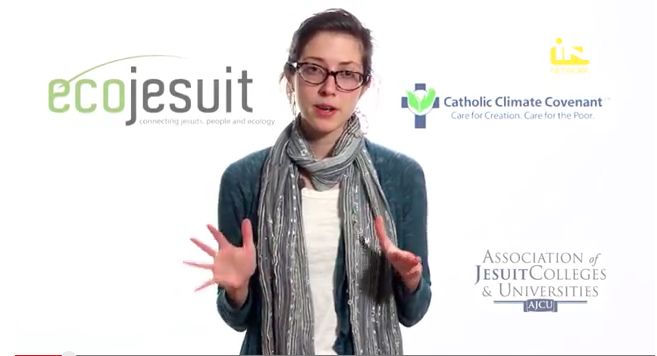Wisdom Story 60
by Paul Brian Campbell,SJ
An emperor in Japan asked Gudo, the Zen master, “What happens to a man of enlightenment after death?” Rulers of medieval Japan often consulted Zen masters on political affairs or philosophical problems and while some emperors were spiritually quite advanced, most rarely understood the true import of the masters’ teachings.
Gudo replied to his emperor, “Phew, I don’t know what happens”.
“Well, you’re supposed to be a master!”
“Yes, but not a dead one!”
JRS directors received by Pope Francis
Pope Francis made the plea to extend hospitality and pursue justice for refugees during the final plenary session of the assembly of the Pontifical Council for the Pastoral Care of Migrants and Itinerant People.

Jesuit Refugee Service International Director, Peter Balleis S.J. and JRS Middle East and North Africa Director Nawras Sammour S.J. attended the final session of the three-day assembly promoting the theme of welcoming displaced people under the title, “The Church’s pastoral care in the context of forced migration,” and was attended by a conglomerate of church leaders, migration experts and pastoral workers.
The meeting fostered discussion about ways the Catholic community can best respond to the injustices causing forced migration for millions globally while also keeping the dignity of each individual person intact.
In Pope Francis’ address he said one of the Church’s roles is to be aware of the hardship faced by refugees and prepare to respond to the “wounds that mark their existence” such as the abuse of power, violence, traumatic events and anxiety about their futures.
These factors all dehumanize refugees. As such they should push every Christian and the entire community to a concrete attention, said Pope Francis.
Syria represents one of the places worldwide where people find themselves repeatedly traumatized, separated from their families and indefinitely trapped in a violent power struggle. Since the war erupted in 2011, nearly six million people have been displaced either within Syria or across the border into Lebanon, Jordan, Turkey and Iraq.
“Despite the tragedy in Syria, JRS has witnessed time and again the resilience of displaced communities. Throughout the ongoing insecurity more than 500 Syrian volunteers help with JRS projects of food distribution and educational projects in Aleppo, Homs and Damascus,” said JRS International Director Peter Balleis S.J.
Perseverance. The Holy Father expressed his admiration for those who persevere through displacement.
“I would like to invite everyone to see and take to heart the experiences and the rays of hope of refugees and forcibly displaced persons. This hope is expressed in their expectations for the future, desire for friendship, to participate in their host societies, including through language learning, access to employment and education for their children,” said Pope Francis.
This hope and enthusiasm has been exemplified not only in Syria, but throughout the world. In war-torn Afghanistan young students eagerly take part in the JRS and JC:HEM (Jesuit Commons: Higher Education at the Margins) online tertiary education program. In northern Thailand, Burmese refugees previously marginalized from the marketplace have learned skills allowing them to be hired by local businesses.
“We believe the work of JRS strongly reflects the call of Pope Francis to be a voice for the displaced, to advocate against unjust policies and to serve refugees in the most perilous times of their lives. In return, we have witnessed the hope the Holy Father mentions; hope for a more peaceful future and more hospitable communities,” said Peter Balleis S.J.
Best Ignatian Songs: Blessed

by Jim Manney
I love the song “Blessed” by the country singer-songwriter Lucinda Williams for its celebration of humility. It’s about people–mostly obscure and suffering people–who bless us by simply being who they are. It’s a kind of litany. It could be an examen–a recollection of the way God blesses us through the people in our lives.
We were blessed by the minister
Who practiced what he preached
We were blessed by the poor man
Who said that heaven was within reach
We were blessed by the girl selling roses
Who showed us how to live
We were blessed by the neglected child
Who knew how to forgive
We were blessed by the battered woman
Who didn’t seek revenge
We were blessed by the warrior
Who didn’t need to win
Ask Iggy

by Jim Manney
Curious about the Jesuits? Our pals at The Jesuit Post have answers for you. They’ve launched a new video series on their YouTube channel called “Ask Iggy,” which will probe the mysteries of the Society in the droll style that TJP is famous for. The first video tackles the difference between Jesuits and “regular” priests. (Yes, the Jesuits are special.)
The producers of Ask Iggy want more questions. Put your questions in the comments, and we’ll pass them along.
Making choices the Ignatian way
Soon we celebrate the Ascension of Jesus, the end of Easter time. “Go, make disciples of all nations”, Jesus instructed after his resurrection, giving his followers a universal mission.

Inspired by that gospel mission Ignatius Loyola sent his own companions all over Europe, to Ethiopia, India, Japan and China. The great friend of Ignatius, Francis Xavier, made such a journey to Asia Pacific and many have followed him. They were big journeys in those days, with great risks. We Jesuits and companions are on mission today in Asia Pacific because of those journeys and choices.
Ignatius sent his followers out on a universal mission and he developed with them a way to make discerning choices. The Ignatian ‘way’ of choosing has three steps: start in the Spirit; give from the heart; and choose a practical path.
The starting point is to take our problem to the Spirit. Begin by calling on God’s spirit and giving thanks to our heavenly Father, as Jesus does.
Second, allow yourself to be moved from the heart. Jesus is moved with compassion for the crowd. He understood their hunger. Place your heart in the hands of God. Do not be afraid of the feelings of your heart, but test them. Which are the feelings that give a lasting sense of consolation?
Third, do what is practical. Ignatius’ models are the disciples of Jesus, constantly sent on the journey, going out to heal those who are in need, whether in body or in spirit. As the disciples distributed God’s goodness, so too in their day did Ignatius and his companions, Xavier and many others. And so do we today by our lives distribute God’s goodness to one another.
The longest journey ever, someone has said, is the journey from the head to the heart, the journey within. Once we make up our mind in our head, it is the heart that puts it into practice. Curiously, to make practical decisions, we have to have a heart. Convinced in our hearts, we can travel anywhere.
It may help to notice that, as Matthew tells the story, when the disciples went to that mountain in Galilee and saw Jesus for the last time before his Ascension, while they fell down before him, some hesitated. That hesitation is the normal doubt we feel about our own capacity.
That is why we need light to guide us, food to sustain us, and the solidarity of friends on the journey.
In Deuteronomy, we are told “the choice the Lord puts before us is life and prosperity, or death and disaster”. We are urged to choose between life and death. The choice is obvious, you might say. What silly person will choose death?
Ignatius our patron, a ‘can-do’ type of mystic, gives us a practical way to deal with choices in life, especially the ones we have to make when our resources are at their limit, or our path appears to be at its end. For a miner trapped in a dark cave, even a pinpoint of light is a source of immense hope. Ignatius’ lamp is the flame that burns in our hearts. Ignatius’ lamp helps us to identify a path forward both in dark moments and in good times. The longest journey is from the head to the heart. But when our head and our heart agree, no one can stop us. The longest journey begins with the first step, says Lao Tse, and when we take that step, we can go forth and set the world on fire.
Mark Raper SJ
President, Jesuit Conference of Asia Pacific
May 7, 2013
Blessed Joseph Anchieta,SJ

Blessed Joseph Anchieta was born in the Canary Islands, Spain, and son of a wealthy and prominent family. He attended the Jesuit College in Portugal and entered the Jesuit Novitiate at the age of 17. During his noviceship, he suffered a spinal dislocation which caused him pain for the rest of his life.
His superiors sent him to Brazil to regain his health but it never improved. He arrived in Brazil at 19 and had his first contact with the Tupi Indians living in the outskirts of Sao Vicente. He soon learnt to speak the native Tupi-Guarani language, as he believed that to ‘Christianize these people, he must first speak their tongue’.
Together with his superior, Fr. Manuel de Nobrega, they went to Piratininga, where they established a mission called Sao Paola, since they arrived there on the feast of St. Paul. There they taught Latin to those studying for the priesthood, taught grammar and gave catechetical instruction to the Tupi and the Portuguese children. For two decades, Joseph worked on a grammar dictionary used by Portuguese settlers and missionaries.
He served as interpreter to Fr. Nobrega. In 1563, while they were negotiating peace between the Portuguese and the Tamayo tribe, he was detained as a hostage of the Tamayo. During the three months of loneliness and frustration, Joseph composed a poem in honor of the Blessed Virgin Mary. As he had no writing material, he wrote his Latin verses in the seashore’s wet sand and memorized the verses. After his release and return home, he wrote his poem on paper – it had 4172 lines.
After his ordination as a priest at 32, he co-founded the settlement now known as Rio de Janeirio with Fr. Nobrega and was appointed superior of the Sao Paolo and Sao Vicente missions. He also wrote drama in different languages with the plots taken from the Bible and the Catholic faith for his students to perform. He was accorded the honor of being called, ‘The Father of Brazilian National Literature’.
As he grew older, his back deteriorated and he developed a hunchback. He was twice near death but struggled to serve another 10 years at the Espirito Santo Mission. His motto was, ‘Nothing is too arduous that has for its purpose the honor of God and the salvation of souls’. Joseph, Brazil’s most famous and indefatigable missionary finally died at the age of 63.
Book Review : Recipe for Joy

A Stepmom’s Story of Finding Faith, Following Love, and Feeding a Family
Author:Robin Davis
Publisher:Loyola Press Order this book
ISBN:978-0-8294-3795-9
Introduction
There were three things food writer Robin Davis promised she would never do: she would never move back to Ohio, she would never get married, and she would never join an organized religion. Never say never-today, thirty-something Davis is a recent transplant to the Midwest wife and stepmother, and converted Catholic.
About the Author
Robin Davis has been a food writer for almost 20 years. She is currently the food editor at the Columbus Dispatch, where she hosts a weekly cooking segment on the local CBS affiliate. She is a wife to Ken and stepmother to Ben, Molly, and Sarah.
Recommendations
“We are happy to promote the new book from Loyola Press, Recipe for Joy.”
-Fr. Leo Patalinghug, Grace Before Meals
“This was great read that makes me consider that maybe I do like memoirs when they’re told as expertly and entertainingly and heart-wrenchingly as this one.”
-Sarah Reinhard
“Davis’s story reminds me once again that there is nothing sedate or mundane about the life of a Believer. You can count on life in Christ being the best adventure you never saw coming.”
-Karen Spears Zacharias
In Recipe for Joy, she shares her stories of food, faith, and family life, and discovers that “food” is the language she can speak when stepping into unfamiliar territory.
Recipe for Joy tells Davis’s story of recognizing God’s plan, doubting it, and then discovering why God’s plan is her newfound path. The stories in Recipe for Joy are grouped by themes based on the courses of a meal, and each chapter ends with a recipe inspired by the theme. Recipe for Joy reveals that food and faith can go hand in hand and that God uses people (and some really good meals) to bring us into a closer relationship with God.
In Recipe for Joy, Robin Davis shares her stories of food, faith, and family life, and discovers how “food” is the language she can speak when stepping into unfamiliar territory.
Index of Shalom June 2013
- PRAYING WITH THE CHURCH
- 1 Jun St Justin, Martyr
- 2 Jun THE BODY AND BLOOD OF CHRIST
- 3 Jun SS. Charles Lwanga & Comps, Martyrs
- 4 Jun
- 5 Jun St Boniface, Bishop & Martyr
- 6 Jun St Norbert, Bishop
- 7 Jun MOST SACRED HEART OF JESUS
- 8 Jun The Immaculate Heart of the Blessed Virgin Mary
- 9 Jun Sunday
- 10 Jun
- 11 Jun St Barnabas, Apostle
- 12 Jun
- 13 Jun St Anthony of Padua, Priest & Doctor
- 14 Jun
- 15 Jun Most Sacred Heart of Jesus
- 16 Jun Sunday
- 17 Jun
- 18 Jun
- 19 Jun SS Philip Minh, priest and Comps, College General Martyrs
- 20 Jun
- 21 Jun St Aloysius Gonzaga, religious
- 22 Jun St. Paulinus of Nola, Bishop; SS. John Fisher, Bishop & Thomas More, Martyrs
- 23 Jun Sunday
- 24 Jun The Nativity of St John the Baptist
- 25 Jun
- 26 Jun
- 27 Jun St Cyril of Alexandria, bishop & doctor
- 28 Jun St Irenaeus, bishop & martyr
- 29 Jun Ss Peter and Paul, Apostles
- 30 Jun Sunday
8th Week in Ordinary Time
9th Week in Ordinary Time
10th Week in Ordinary Time
11th Week in Ordinary Time
12th Week in Ordinary Time
13th Week in Ordinary Time
Why Ignatian Spirituality Appeals to Young People

by Tim-Muldoon
Why is Ignatian spirituality appropriate for young people and seekers? It’s a spirituality that invites taking a moment to ask the deep questions: What am I living for? What am I hoping to get out of life? Do I have a purpose?
And then Ignatian spirituality gives us practices to help us get better asking and answering those deeper questions.
Earth Day 2013 webisode on Jesuit initiatives and eco-justice

by Ecojesuit
Ignatian News Network or IN Network , an online news channel on YouTube of Loyola Productions released their Earth Day webisode and shared some Jesuit initiatives on eco-justice.
The webisode Earth Day 2013: A Look at Eco-Justice, hosted by Molly McVie, featured Catholic organizations taking up the cause of eco-justice, as a blend of sustainability and human justice and as a response to the 2011 call by Father General to increase efforts amongst Jesuits and Jesuit institutions for more sustainable practices.
The four-minute webisode included efforts by American Jesuit universities, through the Association of Jesuit Colleges and Universities, such as Boston College and its sustainability fair where students get to learn about sustainable practices and Fairfield University that installed a rainwater harvesting system in their campus.
Ecojesuit was also asked about its efforts to share stories from around the world on environmental and social concerns and where the Jesuit response is. Sylvia Miclat, part of Ecojesuit’s editorial team, mentioned the role of communications and Pedro Walpole, SJ, a member of the Task Force on Ecology, focused on the care and action of the Jesuits for people to have a better quality of life.
Dan Misleh, Executive Director of the Catholic Coalition on Climate Change shared that their organization helps Catholics in the United States to understand Catholic social teaching on the issue of climate change. They have a campaign called the Catholic Climate Covenant where one takes the Saint Francis Pledge, which is about five things: to pray about care for creation, to learn about the science of climate change and Catholic teaching on the issue, to assess the impacts, to act on that assessment and change behaviors, and to advocate on behalf of those who are particularly harmed by the impact of climate change.





